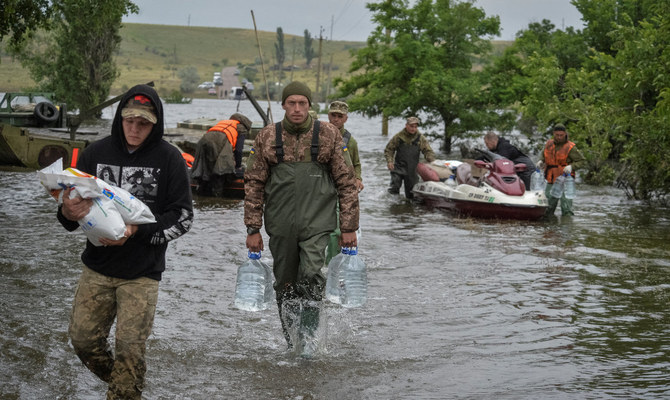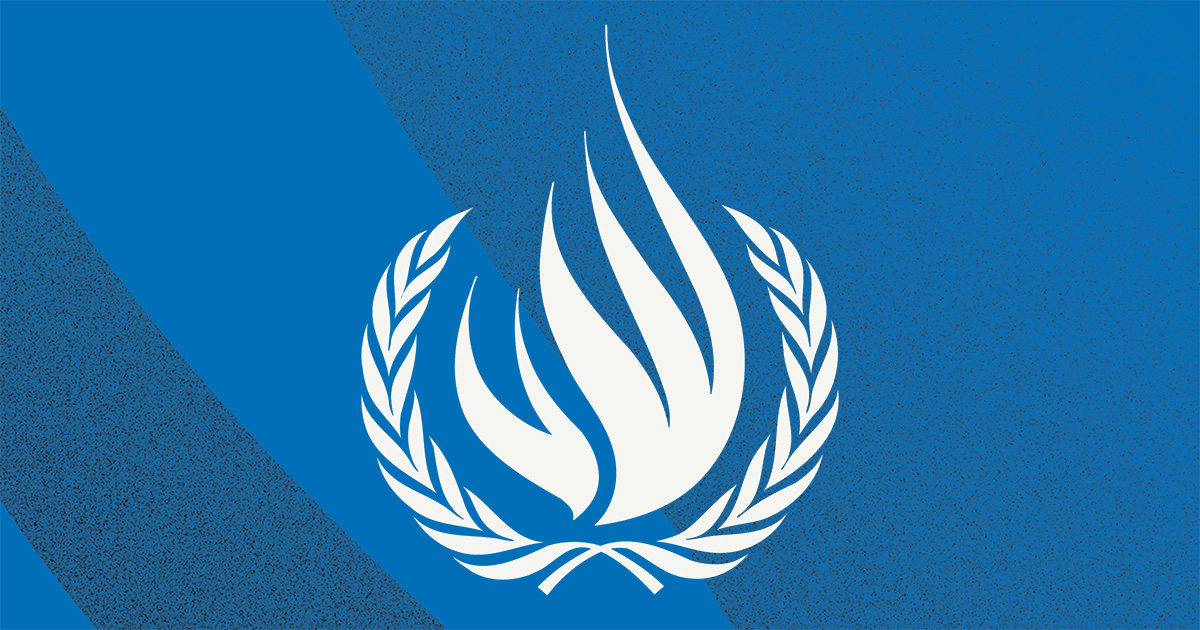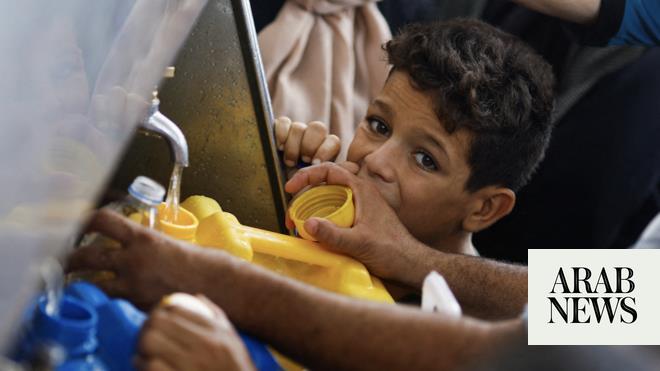
Water is a weapon of war that is deepening conflict in the Middle East, with women the worst hit, said British-Egyptian playwright Sabrina Mahfouz on the sidelines of her new show.
Raised in Cairo and London, Mahfouz wrote “A History of Water in the Middle East,” which retells the region’s colonial carve-up and subsequent water stresses, from Dubai to Baghdad.
“The weaponization of it (water) over so many centuries has obviously led to the situation now - where it just seems so much more extreme,” Mahfouz told the Thomson Reuters Foundation.
“Access to water is just diminishing to the most non-existent levels,” she said after acting in her own show on Tuesday evening.
More than half the world’s population is likely to live in water-scarce areas by 2050, according to the Economist Intelligence Unit.
Mahfouz depicts a series of women who triumph over such adversity by exploiting water shortages to their own advantage.
There is an Emirati who sets up a water-based dating app, helping couples conserve the world’s most precious resource, and a singing Jordanian plumber liberated by the shortages to take up a new profession fixing leaks.
“Women are always disproportionately affected (by war),” said Mahfouz at London’s prestigious Royal Court Theater.
They bear the brunt of family duties and fend off social pressures, too, she said.
Her stage characters discuss sexual violence against women in Yemen, who are unable even to wash, or who see their children die from water-borne diseases such as cholera.
But Mahfouz, elected as a fellow to Britain’s Royal Society of Literature last year, said her spirited characters were not to be pitied but lauded as women with an inner power.
“They’re showing a resilience and an inventiveness and an ability to adapt and succeed to try and find happiness - no matter what the external situations are,” she said.
The fast-paced play is a heavily condensed and edited race through history, said Mahfouz; choosing what to cover was hard.
“Almost every country has some sort of water-related argument with a neighboring country. ..I could only choose a few.”
A study in the journal Global Environmental Change found severe droughts had worsened conflicts in Arab Spring countries earlier this decade, forcing people to flee.
Water and climate experts point to a similar problem in Syria, where record droughts drove farming families into urban centers, exacerbating social and political tensions.
Egypt is at odds with its neighbors over access to the Nile and plans for a giant hydroelectric dam in Ethiopia have sparked regional tensions over restrictions to shared water supplies.
The most thirsty countries in the world are all in the Middle East and North Africa, with Qatar the most water-stressed country, followed by Israel and Lebanon, according to US think tank the World Resources Institute.












